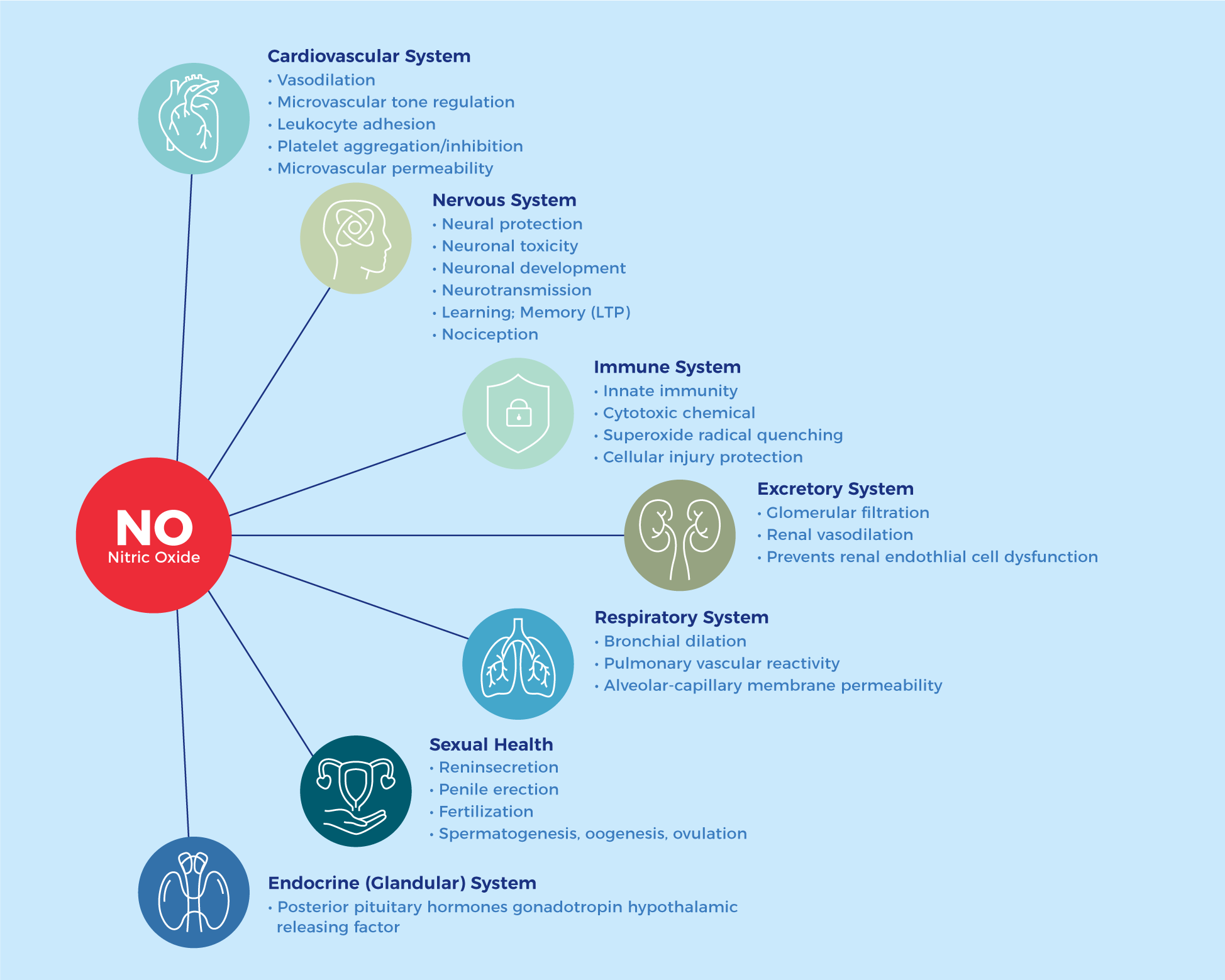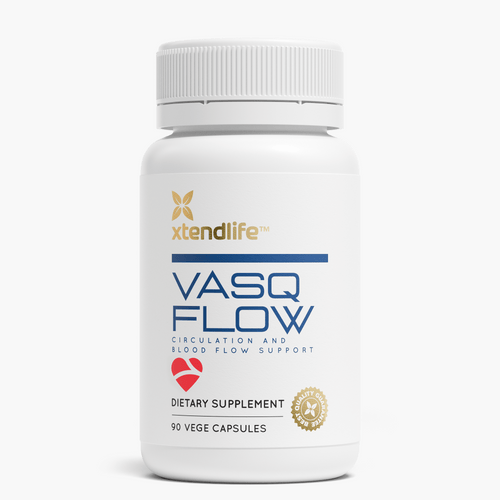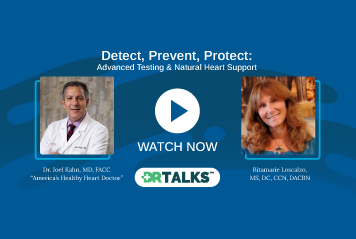Nitric oxide (NO) is a small molecule that plays a critical role in various physiological processes, including blood vessel dilation and blood flow regulation.
NO wasn't always recognised as an essential molecule for normal physiological functions. In fact, it was a ground-breaking discovery by researchers in the 1980s that opened the door for research into the health benefits of it. In 1987 researchers published an elegant and first-of-its-kind study showing that the factor which was known at the time as "endothelium-derived relaxing factor" was in fact, NO.
That discovery later earned the researchers a Nobel Prize for their discoveries showing "nitric oxide as a signaling molecule in the cardiovascular system".
Our bodies make NO using a group of enzymes called nitric oxide synthase (NOS). There are three types of NOS enzymes and each have important and distinct roles. They are:
- Inducible NOS (iNOS). This enzyme is activated by inflammation as part of an immune response, particularly in cells called macrophages. It is also present in other cells such as neurons and cells at the blood-brain barrier.
- Neuronal NOS (nNOS). This form is abundant in neurons and helps control neuronal functions. Recently it has been shown that this form of the enzyme is also present in many other types of cells such as the endothelium and smooth muscle cells.
- Endothelial NOS (eNOS). This is the main form of the NOS enzyme that is involved in the control of vascular function.
The Many Roles of NO
NO is a very busy molecule. It is involved in a huge array of physiological functions, as outlined in the diagram below.

Nitric Oxide Benefits
The best-characterized role of NO is being a vasodilator, meaning it relaxes the inner muscles of your blood vessels, causing the vessels to widen. In this way, NO increases blood flow, and this brings many cardiovascular benefits.
Having wider blood vessels and optimal blood flow also helps increase the delivery of oxygen and nutrients to working muscles during exercise, thus having the potential to enhance exercise performance. Because of this, supplements that boost NO have proven popular among professional athletes and recreational gym-goers alike.
NO Declines with Age
When we're young, the production of NO is both efficient and sufficient. As we age, the amount of NO in our tissues declines. Researchers have uncovered that there are multiple pathways at play that ultimately result in a reduced amount of NO:
- Increased breakdown of NO. As we age, there is an increase in a molecule called superoxide. This rapidly transforms NO into a damaging molecule called peroxynitrite.
- Decreased eNOS. The endothelium loses its ability to create NO because there is less of the eNOS enzyme.
- Reduced building blocks to make NO. An increase in a molecule called arginase reduces the building block for NO production (L-arginine), resulting in lower NO production.
The net result in terms of NO levels in aging is rather stark. It has been shown that there is a gradual decline in endothelial function. One group of researchers showed that there was a 50% loss in endothelial function in those over the age of 60. In another study, it was shown that there was a loss of 75% of endothelium-derived NO in 70-80-year-olds compared to young, healthy 20-year-olds.

The research is unequivocal, endothelial function declines progressively with increasing age. In fact, most studies have shown that this impairment becomes evident during the fourth decade of life. What's really fascinating is that endothelium's responsiveness to NO doesn't change with aging, it's just the level of NO and the ability to generate NO that declines.
How to Support Healthy NO Levels
You may be wondering what you can do to support healthy levels of NO as you age. Having a healthy lifestyle is an absolute must and this should include:
- Eating vegetables that are high in nitrates such as beetroot, spinach, and celery. When you consume nitrates, your body converts it to nitric oxide, which in turn causes blood vessels to relax and dilate, facilitating healthy blood flow.
- Eating colourful fruit and vegetables that are high in antioxidants.
- Get your blood pumping with at least 30 minutes of medium to high-intensity exercise a day. This helps keep your blood vessels in good shape.
- Limit or omit use of mouthwash. Antibacterial mouthwashes destroy mouth bacteria that convert nitrates to NO. Instead, focus on excellent brushing and flossing and cut out sugar that can cause cavities.
- Consider a supplement to boost NO, such as Xtendlife's latest innovation, VasQFlow. This product contains NO boosting ingredients including Red Spinach Extract which is clinically proven to increase nitrates (a surrogate marker for NO levels). To learn more about our nitric oxide boosting supplements and their respective ingredients, head to our blog "A Natural Approach to Boosting Nitric Oxide".
VasQFlow
Containing NO boosting ingredients including Red Spinach Extract which is clinically proven to increase nitrates.
Shop now
References

Dr. Amanda Wiggins
Xtend-Life Research Scientist
Dr. Amanda Wiggins works with Xtend-Life as the Chief Research Scientist, where she can use her passion for science, research and nutrition.


 Supplements
Supplements Superfoods
Superfoods Bundles
Bundles

















